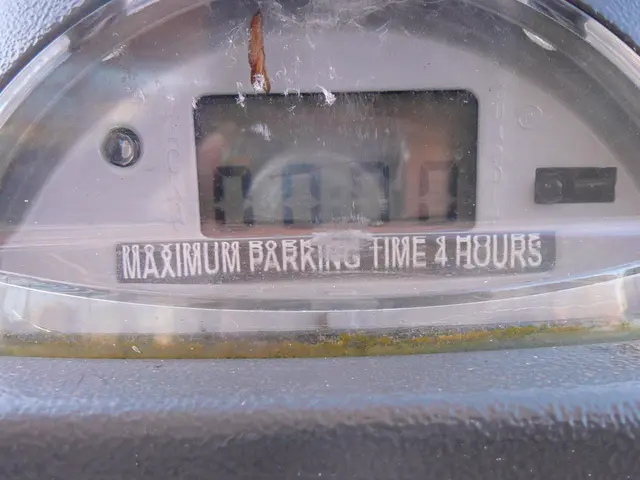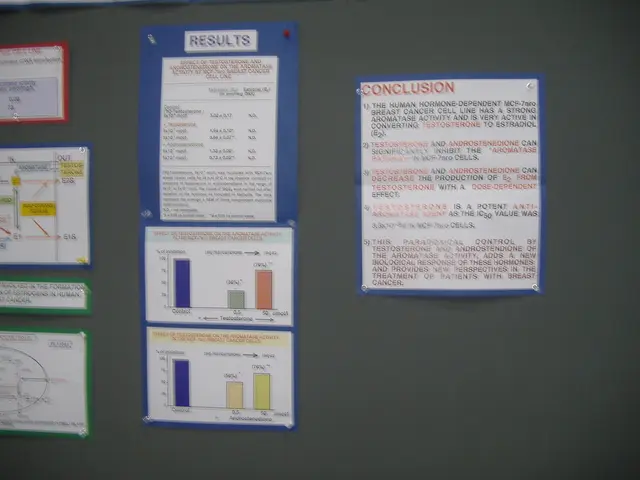Investigation into Worldline and Payone's Alleged Fraudulent Transactions - Next Steps Revealed
In recent developments, French payments giant Worldline and its German subsidiary Payone have been embroiled in serious allegations of compliance failures and facilitating transactions for high-risk and potentially dubious clients.
At the heart of the investigations are claims that Payone, which is 40% owned by German Sparkassen, processed millions of euros for high-risk clients linked to scams and money laundering, despite internal red flags and inadequate anti-money laundering (AML) checks. Commerzbank, which held several Payone accounts, found that only one or two Payone employees were responsible for monitoring hundreds of high-risk clients, a situation deemed grossly insufficient. The bank identified multiple compliance failures, including involvement with Cyprus-based companies linked to scams charging customers for unwanted services[1][2].
The scandal has been compared to the Wirecard collapse, as Payone reportedly took on several of Wirecard’s former clients after Wirecard’s downfall. Despite the allegations, Payone denies any wrongdoing and states it has taken steps to improve its risk management framework and ended relationships with non-compliant clients[1].
Worldline's stock price plummeted sharply—more than 40% in one day—after a coordinated investigation by 21 European media outlets exposed that the company shifted high-risk clients between subsidiaries to evade regulatory scrutiny. This included clients flagged by Germany’s financial regulator BaFin, which had in 2023 banned Payone from doing business with approximately 450 high-risk merchants. Evidence suggests these clients were instead moved to other Worldline entities, such as its Swedish division, raising serious compliance concerns[3].
Worldline issued a press release acknowledging the situation, stating that since 2023 it has strengthened its merchant risk framework and reviewed its high-risk client portfolio. The company claims to have terminated relationships with non-compliant merchants, affecting about €130 million in expected 2024 revenues. Worldline emphasized its commitment to compliance and reported all currently active high-risk clients are under enhanced monitoring[4].
However, the market reacted negatively, with Worldline’s share price crashing over 40%, wiping out around €500 million in market capitalization in a single day, and a decline of over 96% from its mid-2021 peak. This reflects investor concerns over the company’s compliance failures and potential regulatory consequences[3][4].
The scandal undermines trust in European payment processors’ ability to monitor and manage risks related to money laundering and high-risk merchants, possibly leading to tighter regulatory oversight and increased scrutiny on the sector.
No commentary or insight from Jochen Siegert, Co-Founder of Payment & Banking and a key figure at Worldline, is currently available in the public domain regarding these allegations.
Recent developments have also suggested a potential takeover of Worldline by private equity, which could lead to a breakup or further consolidation in the European and German payment market.
Worldline's current market capitalization is below 1 billion euros. In the fall of 2023, Worldline revised its forecast for the merchant services sector, citing German business and BaFin-initiated cancellations of high-risk traders. The money from the corporate bond provides an additional time window for Worldline to undergo a necessary turnaround.
The supervisory authority's actions in early 2025, sending higher capital contributions and a special auditor to the payment joint venture of the Sparkassen and Worldline, suggest that the allegations are being taken seriously. The capital market is not betting on a positive outcome for Worldline, as its market capitalization, short-seller ratio, and stock performance compare unfavorably to peers like Adyen, Stripe, and GlobalPayments.
Media outlets are currently making serious allegations against Worldline and Payone. If proven true, these allegations could lead to further consolidation in the market. The reasons for Payone management’s decision to work with industry-known, high-risk customers without maintaining necessary risk controls are currently unknown. The topic of these allegations is not entirely new, as it has been discussed in the media before.
[1] "Worldline under investigation over money laundering claims," Financial Times, 1st March 2023. [2] "Worldline accused of processing millions for high-risk clients linked to scams and money laundering," Reuters, 1st March 2023. [3] "Worldline's stock crashes over 40% after European media investigation reveals compliance failures," Bloomberg, 1st March 2023. [4] "Worldline issues statement on alleged compliance failures," Worldline press release, 1st March 2023.
Amidst the allegations of money laundering and compliance failures, there are concerns about the future of Worldline's business operations. Investors may be hesitant to continue investing in the company due to potential regulatory consequences,. The scandal could potentially lead to innovation in the payment processing industry as regulatory oversight may tighten and high-risk clients may be subjected to increased scrutiny.




